"Stopping the clock" symbolizes halting the ageing process, an impossible feat, but it can be slowed through mindful lifestyle changes. By raising awareness about age-related diseases and incorporating longevity supplements, individuals can actively engage in their well-being journey. Embracing practices like yoga, adopting a healthy lifestyle, safeguarding skin from the sun, quitting smoking, managing stress, and nurturing social connections collectively contribute to a proactive approach to slowing down the ageing clock. These steps empower individuals to prioritize health and enhance their overall quality of life.
What is Ageing and How to Reverse The Biological Age?
Ageing is a natural process that occurs due to the accumulation of molecular and cellular damage buildup in the body over time. This results in a decrease in both physical and mental activity. These changes are not constant but are associated with a person’s age. Chronological Age is the amount of time from birth to present and is the main way of determining age. Biological age is different from chronological age. It determines the age of our cells and is affected by factors such as genetics, lifestyle, and nutrition. So, how can you determine your biological age?
- Epigenetic Ageing Clocks, which analyze DNA methylation patterns. There are four notable biological age clocks:
- Hannum Clock: This estimates biological age by examining specific CpG sites, shedding light on the ageing process and its potential health implications.
- Horvath Clock: The clock is based on 353 biomarkers that measure the DNA methylation of CpG sites.
- GrimAge Clock: Measures age by identifying 12 DNA methylation plasma proteins.
-
PhenoAge Clock: This clock considers age-related biomarkers, including clinical measures, inflammation markers, and metabolic health indicators, along with DNA methylation data. It offers a comprehensive assessment of biological age.
2. The Glycan Clock is the first biological ageing clock that examines the glycans attached to the IgG antibody and is based on the immune system and inflammation to determine your biological age.
- One can reverse biological age by adopting good lifestyle habits, exercising regularly, following biohack tips, managing stress etc., When we get to know our biological age, we can know the measures that should be taken to reduce our biological age.
The Effects of Ageing On the Human Body
The natural ageing process has an impact on every part of the human body. Our cells and tissues change as we age, resulting in a reduction in our ability to function both mentally and physically. While some changes associated with ageing are not controllable.
The Effect of Ageing on the Heart
Our heart is a strong muscle that pumps blood into our body. The size of a normal heart is equal to the size of your clenched fist. It continuously works like an engine, when it stops it will lead to death. People aged 65+ or above have the risk of getting a heart attack, stroke, coronary heart disease, and heart failure. As a person ages changes occur in the heart and blood vessels. When doing any physical activity your heart cannot beat faster like how it was beating. The number of heartbeats per minute or heart rate reduces gradually.
As age increases we see the following changes in the heart:
- Stiffness of the arteries
- High blood pressure
- Irregular heartbeats
- Increase in chamber size
- Thickening of the walls
- Swelling of the foot
The following age-related diseases occur:
- Arrhythmia is an irregular heartbeat that affects your heart's rhythm. The heartbeats can be slow or quick. During physical activity, it is normal for the heart rate to increase and while sleeping it slows down. The prolonged condition leads to strokes, heart failure, and even cardiac arrest.
- Arteriosclerosis- It occurs when the walls of the blood vessels which carry oxygen and nutrients from the heart to other parts of the body thicken up. The healthy arteries are elastic and flexible but the unhealthy ones have hard walls and are stiff.
- Atherosclerosis- It is the build-up of fats, cholesterol, and other substances on the walls of the artery. This build-up blocks the blood flow and narrows the arteries, leading to blood clots.
- Coronary artery disease- It occurs when the blood vessels cannot supply blood, oxygen, and nutrients to the heart. Accumulation of cholesterol deposits in the heart arteries also is a cause of this disease.
The Effect of Ageing on the Muscles
Our bodies naturally change as we age, and this also applies to our muscles. Sarcopenia, a condition marked by a decrease in muscle mass and strength, is one of the most obvious changes. Our daily lives are significantly impacted by this loss of muscle tissue, which can make it harder to complete tasks and raise our risk of accidents and injuries.
As age increases the following changes are seen in the muscles:
- Reduced muscle protein synthesis- Sarcopenia results from a net loss of muscle tissue due to decreased muscle protein synthesis. This occurs as a result of the faster rate of muscle deterioration than muscle repair.
- Loss of motor neurons- Muscle function and strength can be significantly reduced by the atrophy of remaining muscle fibres and the loss of new muscle fibres. Getting out of bed, carrying groceries, and climbing stairs can all become challenging as a result.
- Hormonal changes- Sarcopenia is largely caused by hormonal changes, mainly a decrease in growth hormone, estrogen, and testosterone. These hormones are essential for maintaining, repairing, and growing muscle. The body's capacity to synthesize muscle protein declines with age, resulting in the loss of muscle mass and weakness.
- Decreased physical activity- Decreased physical activity leads to sarcopenia because muscles need to be used to stay strong. When you don't use your muscles, they shrink and become weaker. This can make it difficult to perform everyday tasks and increase your risk of falls and injuries.
The Effect of Ageing on the Bones
Many changes occur in our bones which can make them more brittle and prone to breaking. This is caused by several things, such as:
- Decreased bone mineral density- Your bone’s mineral content is calculated by bone mineral density (BMD). As we age, our BMD declines, causing our bones to become less dense and more prone to breaking.
- Changes in bone structure- As we age, our bone's structural makeup changes. The cancellous bone, which is the inner layer of bone, becomes more porous while the cortex, the outer layer of bone, becomes thinner. As a result, bones become weaker and more prone to breaking.
- Reduced bone remodeling-The process by which old bone is broken down and replaced with new bone is known as bone remodelling. Age causes this process to slow down, which results in a net loss of bone.
The Effect of Ageing on the Eyes
Numerous changes that occur in our bodies as we age can have an impact on our eyes. These alterations result in a reduction in vision, which would make it challenging to carry out routine activities like driving, reading, and facial recognition.
The Effect of Ageing on the Brain
As we age our brain also changes which has effects on our brain function. These changes include the inability to recall memory, not thinking fast, and less problem-solving skills. The parts of the brain shrink mainly the ones responsible for learning and other mental activities.
- Loss of neurons- As we age, our brain also experiences a loss of neurons or nerve cells. The prefrontal cortex and the hippocampus show the most signs of this loss. Because the brain's capacity to process information and communicate with itself is diminished, the loss of neurons may be a contributing factor in cognitive decline.
- Changes in white matter- Nerve fibres that connect various brain regions make up the white matter. The quantity of white matter in the brain decreases with age. This may cause processing to move more slowly and make multitasking challenging.
- Changes in grey matter- Neuronal cell bodies comprise grey matter. Certain areas of the brain, such as the prefrontal cortex, lose some of their grey matter as people age. This results in issues with focus, memory, and problem-solving abilities.
- Changes in neurotransmitters- Chemicals called neurotransmitters give neurons the ability to communicate with one another. The levels of some neurotransmitters, like acetylcholine and dopamine, fluctuate with ageing. These alterations may be a factor in cognitive ageing.
- Decreased Blood Flow- Blood flow to the grey matter of the brain is higher than in white matter but reaches its peak at younger ages before decreasing. The white matter that is deeper in the brain is prone to be more susceptible to damage with ageing because it receives lower blood flow than other white matter regions (yellow).
How Ageing Affects Sleep and Human Growth Hormone?
Growth hormone (GH) plays a crucial role in various physiological processes, encompassing metabolism, growth, and development. It is primarily released by the pituitary gland during sleep, particularly in the deep sleep stages. The decline in growth hormone production is associated with ageing, affecting both physical and psychological functions. Growth hormone disorders are predominantly observed in young individuals, leading to a decrease in lean body muscle, an increase in body fat, and a reduction in muscle mass. Cognitive function also tends to decline with age. Approximately 75% of growth hormone is released during sleep, highlighting the significant relationship between sleep and GH secretion. Lower growth hormone levels can result in insomnia or deficiencies. Furthermore, maintaining adequate growth hormone levels contributes to a healthy metabolism, reduces stress, and supports healthy ageing. The connection between sleep and GH secretion is robust. Slow-wave sleep (SWS), synonymous with deep sleep, is crucial for stimulating growth hormone release. GH levels experience a significant increase during SWS, peaking about an hour after sleep onset. Ensuring good sleep quality is linked to a reduced risk of disorders such as insomnia and apnea.
How do Antioxidants combat Free radicals and reduce Ageing?
Antioxidants are substances that kill the free radicals and other reactive oxygen species Free radicals are species that have one electron. More free radicals cause oxidative stress imbalance between free radical production and antioxidants leading to protein, lipids, and nucleic acid damage (McCord, 2000).
The decrease in antioxidants with increasing age leads to diseases such as arthritis, lupus, stroke, adult respiratory syndrome, etc., Mainly heart diseases kill elder people. Taking antioxidants such as Vitamins A, E, and C reduces the risk of heart issues. Free radicals contribute to ageing in the following ways:
- Increase Inflammation
- Decrease mitochondrial function
- Damage DNA
- Reduce Telomere length
What measures can be taken to delay the ageing process?
It is possible to slow down the ageing process and this starts within your cells. There are theories of ageing that help in understanding the complexity of ageing. To maintain a healthy life and health span one should adopt good lifestyle habits such as exercising, eating well-balanced diets, sleeping on time biohacking tips, etc., and one of the best things is you can include superfood salad recipes that are healthy and packed with nutrients. Anti-ageing has become a popular topic in today’s world as many people are willing to live for more years and healthily.
Can ageing be slowed down?
Yes, ageing can be influenced by lifestyle and supplements. Understanding biological age, adopting healthy habits, and exploring anti-ageing strategies contribute to a longer, healthier life.
Antioxidant therapy
Exogenous antioxidants can reduce the decrease the build-up of oxidized molecules. Scientists are unable to determine if antioxidant anti-ageing therapy is a myth or a real treatment due to the less data availability. Studies of long-lived populations in Okinawa, Japan, and rural Mediterranean regions, such as Greece, Italy, and Spain, provide compelling evidence linking dietary patterns to longevity. These populations' diets are characterized by a high intake of fruits, vegetables (particularly orange-yellow root vegetables and leafy greens), legumes, extra virgin olive oil, fish, and traditional spices rich in natural antioxidants. Additionally, these diets are typically low in saturated fat, have a low glycemic load, and involve moderate calorie intake. This combination of dietary factors is likely to contribute to the observed anti-ageing effects of these diets (Willcox et al., 2009).
Calorie Restriction
Studies on non-human and human primates consistently show that caloric restriction extends lifespan. In a 6-month human study, prolonged calorie restriction decreased two longevity biomarkers: fasting insulin and body temperature, along with reducing DNA damage. Protein carbonyl concentrations remained stable, but researchers propose mechanisms like reduced lipid peroxidation, improved oxidative damage repair, enhanced antioxidant defence, and decreased mitochondrial free radical generation for caloric restriction's anti-ageing effects.(Gredilla & Barja, 2005).
Supplements for slowing down ageing
While there is no magic pill that can stop or reverse ageing, there are certain supplements that help to slow down the ageing process and promote overall health. Some of the most promising supplements for slowing down ageing include NMN, Trans-Resveratrol, Spermidine, Senolytics, and Ca-AKG.
Conclusion
Ageing, an intricate biological process can be effectively slowed through mindful lifestyle habits and strategic supplement integration. Understanding one's biological age becomes paramount in this endeavour. Embracing a lifestyle characterized by a nutritious diet, regular exercise, and adequate sleep contributes to a longer, healthier lifespan. Additionally, strategic use of supplements, such as those rich in antioxidants, can further support cellular health. The exploration of comprehensive anti-ageing strategies empowers individuals to age gracefully, fostering not only physical well-being but also mental and emotional resilience, ultimately enhancing the overall quality of life.
FAQs
1) Can I really slow down the ageing process naturally?
Yes, you can slow down the ageing process by eating a well-balanced diet, sleeping peacefully, exercising regularly, going for regular health checkups, engaging in mental activities, and maintaining social connections.
2) What is the best way to slow ageing?
One can slow down ageing by eating healthy foods like fresh fruits, vegetables, nuts, etc.,
3) How can I fight ageing naturally?
Aim for eating foods rich in antioxidants, supplements that help in increasing energy levels, sleeping on time, sitting correctly, maintaining your gut etc., can help you fight ageing naturally.
4) What causes ageing the fastest?
The main thing which causes faster ageing is oxidative stress and excessive exposure to sunlight.
5) Are there specific supplements that can help with anti-ageing?
Yes, Supplements like NMN, LongeVit, SeneVit, ResVit etc., help in slowing down ageing and promoting longevity.
6) When should I start taking supplements for anti-ageing?
One should start taking anti-ageing supplements in the early 20s because the physical and mental changes start at this age.
References
McCord, J. M. (2000). The evolution of free radicals and oxidative stress. The American journal of medicine, 108(8), 652-659.
https://doi.org/10.1016/S0002-9343(00)00412-5
Willcox, D. C., Willcox, B. J., Todoriki, H., & Suzuki, M. (2009). The Okinawan diet: health implications of a low-calorie, nutrient-dense, antioxidant-rich dietary pattern low in glycemic load. Journal of the American College of Nutrition, 28(sup4), 500S-516S.
https://doi.org/10.1080/07315724.2009.10718117
Nagata, C., Nakamura, K., Wada, K., Oba, S., Hayashi, M., Takeda, N., & Yasuda, K. (2010). Association of dietary fat, vegetables and antioxidant micronutrients with skin ageing in Japanese women. British Journal of Nutrition, 103(10), 1493-1498.
https://doi.org/10.1017/S0007114509993461
Gredilla, R., & Barja, G. (2005). Minireview: the role of oxidative stress in relation to caloric restriction and longevity. Endocrinology, 146(9), 3713-3717.
https://doi.org/10.1210/en.2005-0378


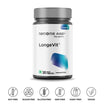
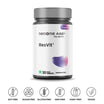
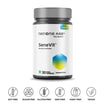
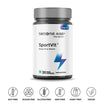
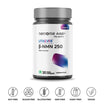
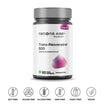
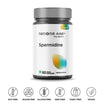
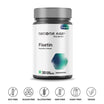
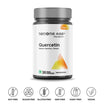
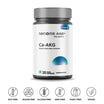
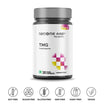
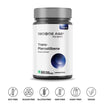

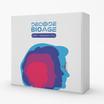
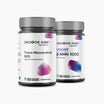
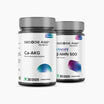
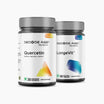
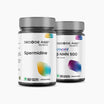
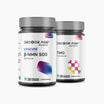
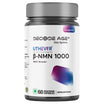
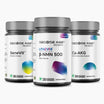
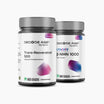
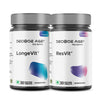
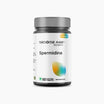
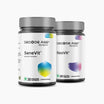
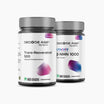
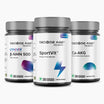
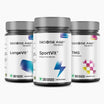
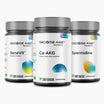
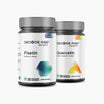
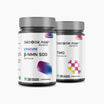
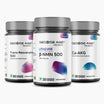
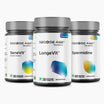
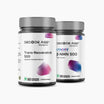


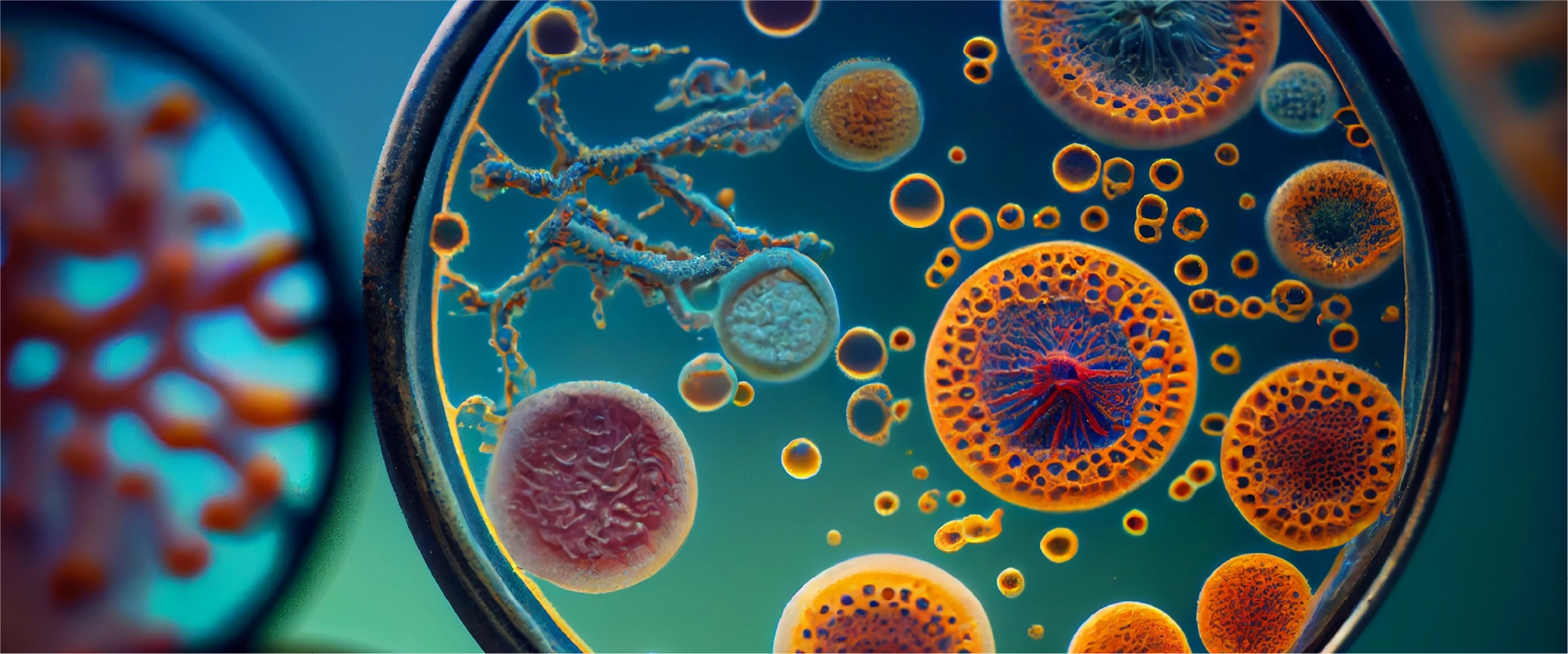
Leave a comment
This site is protected by reCAPTCHA and the Google Privacy Policy and Terms of Service apply.